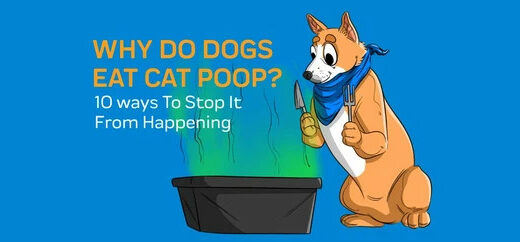
Puppy energy can seem all but limitless. But it can also mean they are always getting into trouble, eating your shoes, digging up your garden, and generally driving you a bit nuts.
As cute as a furry little ball of fury might be, you have probably caught yourself wondering, ‘when will my puppy calm down?’.
There is no single, one-size-fits-all answer. But to explain when puppies will start to calm down, we will need to discuss all the factors that play a role in a pup’s energy levels.
Read on to find out what goes into raising a calm puppy and how long it takes for them to settle down.
Puppy Energy: What You Need To Know
There are many variables involved in how much energy your pup has and how long it will take them to mature. To understand your puppy’s activity levels, we need to look at some of the factors that come into play.
Breed
Your puppy’s breed plays the most significant role in how long it will take to settle down. Low energy breeds like the Bulldog or smaller breeds like the teacup Bichon Frise should start to calm down between 6 and 12 months old, usually around 9 months.
Most other breeds will grow out of their high-energy puppy phase at between 12 and 18 months old. On the other hand, Working breeds such as the Border Collie, the Greenland Dog, and the Australian Shepherd may take up to two years to settle down and still require proper exercise.
Larger, high-energy wolfdogs like the Kugsha or American Blue Bay Shepherd could take up to 3 years or more to reach maturity. The same goes for dogs that come from generations of extreme working lines, like some German Shepherds.
Keep in mind that giant breeds like the Great Dane or the Neapolitan Mastiff are not considered adults until they are three years old either.
Gender
Research by Scott and Fuller found that there is indeed a notable difference in sizes between the genders. But they did not find any conclusive evidence of either gender maturing faster.
At least not in terms of what they referred to as emotional reactivity. While many websites suggest that males take longer to mature than females, there is no certainty.
Females reach reproductive maturity earlier than males, and this may sometimes have a calming effect on them.
There is the common misconception that having your pup spayed or neutered will ensure calmer adolescence. While some behaviors can be avoided by having your dog sterilized, such as scent marking, their energy levels are not exclusively linked to their hormone levels.
This means that neutering or spaying won’t affect a dog’s core personality. An excited, energetic pup’s character is likely to remain mostly unchanged by sterilization.
The effects of sterilization come into play later in a dog’s development, with some degree of laziness often setting in as they mature or their metabolism slowing down faster.
Social structure
If you have older dogs, they should integrate your pup into the pack.
This may help mitigate energetic outbursts. Older dogs will correct a pup if they misbehave, so a healthy pack structure does help your puppy mature.
Many negative behaviors, particularly those caused by excess energy, can be reduced by having your pup form part of the pack. This helps make high-energy outbursts more manageable.
But to understand how a puppy matures, we need to look at its different developmental stages.





